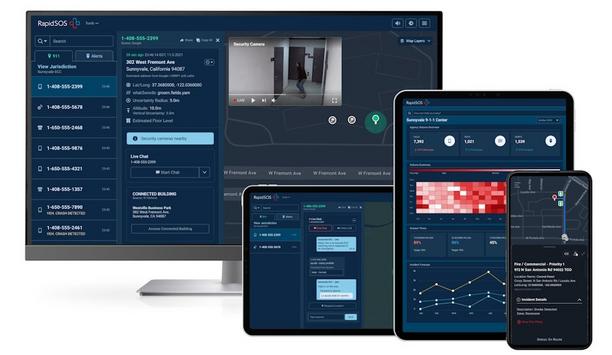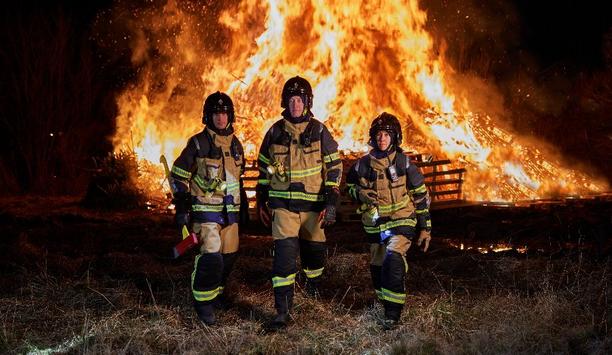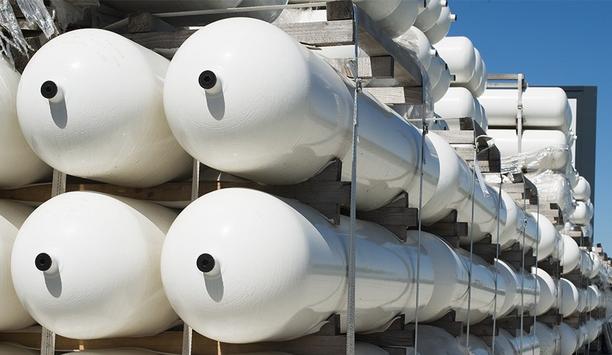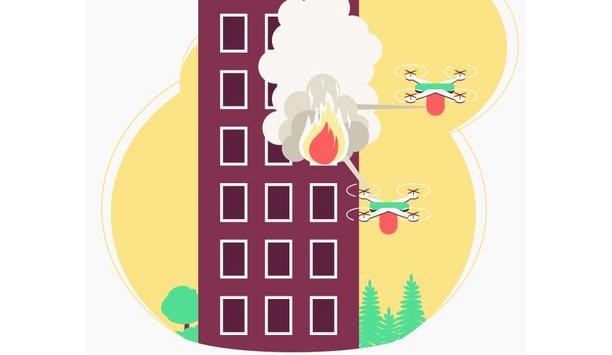Artificial Intelligence - Editor's Dispatch
Information can transform and guide emergency response. For example, in a structure fire, real-time sensor feeds throughout a building can help 911 and first responders understand how the fire is progressing. In fires and other emergencies, more information provides a better understanding and empowers potentially life-saving decision-making. Emergency response teams depend on information to guide their efforts and to deliver targeted assistance. On the front lines of emergency response are 911...
To be a smart city, modern urban areas leverage technology to improve operations and services, in effect deploying a network of sensors and devices to collect data on city operations such as traffic flow, energy use, and waste management. Analyzing the data points enables cities to identify areas for improvement and additional solutions to enhance efficiency, sustainability, and quality of life. But what are the opportunities for the fire service in today’s smart cities? Smart cities ena...
Wildfires swept through the Panhandle region of Texas earlier in 2024. The Smokehouse Creek Fire and the Windy Deuce Fire, both starting on Feb. 26, were the most significant outbreaks. The Smokehouse Creek Fire went on to become the second largest in U.S. history, burning over a million acres across Texas and Oklahoma before it was contained in mid-March. worst-ever wildfire As Texas battled its worst-ever wildfire, firefighters worked to mitigate fire and smoke damage. Among the challenges...
Firefighters face unique stresses and hazards that cause a significantly higher risk of cardiovascular disease compared to the general population. In fact, cardiac events are the pioneering cause of on-duty deaths among firefighters and account for approximately 45% of duty-related firefighter fatalities in the United States, according to the U.S. Centers for Disease Control and Prevention (CDC). The frequency of firefighter deaths from cardiac events is evident in a cursory glance at local new...
The world is changing and challenging the fire service to keep up. The core missions of firefighting and fire prevention have not changed, but the environments in which those missions operate are changing faster than ever before. Technology, sustainability, shifting demographics in recruitment and retention, and an increasing need for partnership and collaboration are among the factors that will impact the fire service and the fire industry in 2024. Let’s consider some of the big issues...
Technology increasingly makes it possible to identify wildfires early and before they get out of control. Networks of video cameras watch wildlands for the first hint of fire, and now artificial intelligence (AI) is being deployed to interpret data from those cameras and alert personnel about an imminent wildfire sooner than ever. FireScout AI FireScout is an AI program seeking to address the issue of wildfires. Using AI, the program can create awareness and “understand” smo...
Information systems drive greater situational awareness when emergency responders are rushing to the scene, including access to live-911 audio feeds, video of the unfolding emergency, and/or geographic information showing the locations of fire hydrants and the best travel route to ensure the most rapid response. Information tools to manage emergency response include the locations of teams, vehicles, and personnel available in three dimensions, including locations in a multi-story building. Pan...
Faster 5G data speeds and low latency profoundly impact the speed of detection and response in the fire market. When seeking early detection of wildfires, for example, faster data speeds translate almost directly into a faster response. New intelligent detection technology New intelligent detection technology for wildfires combines artificial intelligence (AI) with Internet of Things (IoT) connectivity to achieve earlier detection of wildfires that could spread quickly in dry, windy conditions...
In Ann Arbor, Michigan, USA, in May 2022, a helmet camera recorded firefighters extinguishing a truck fire along I-94, catching every detail as sparks flew and firefighters hosed down the truck to suppress the blaze. Firefighters also hosed down the grass on the side of the freeway to put out hot spots and prevent a grass fire, MLive.com reported. The helmet-cam was part of a voluntary program that involves Ann Arbor firefighters wearing cameras when responding to active structure fires to cap...
Among the ways, garments protect firefighters is by reducing the heat stress and discomfort created by the need to carry heavy gear. Making the garments more comfortable to wear means less physical stress. Garments also help to protect firefighters from the toxic elements in the fire environment. The extent to which plastic materials can generate toxic smoke when they burn has previously been ignored but is now better understood. Concerted effort to understand end user As a manufacturer of fi...
A new floating fire station in San Francisco, USA is designed to provide fast response to a variety of emergencies, to adapt to the rise and fall of the natural tide of the bay, and to withstand future sea level changes tied to global warming. Fireboat Station 35 Fireboat Station 35 is berthed at Pier 22-1/2, just north of the Bay Bridge, along the Embarcadero at Harrison just south of the Ferry Building, in San Francisco, California, USA. It is a 14,900-square-foot, two-story fireboat station...
Technology has transformed the role of lighting in the realm of firefighting. The rise of USB-rechargeable flashlights and headlamps now enable firefighters to recharge on-the-go. New, multi-fuel flashlight ‘systems’ use a rechargeable battery, but also can accept disposable batteries for alternate sources of power. New scene lights are waterproof and offer powerful brightness in situations involving smoke or water. Work lights that fit in tight spaces can be used hands-free or hangi...
Under a new law taking effect in February 2022, homes in Scotland must have multiple fire alarms linked by radio frequency, either sealed battery alarms or alarms wired to the electrical system main. Smoke alarms are now required in the living room or most-used room, and also in each hallway or landing. Furthermore, a heat alarm is required in the kitchen. All smoke and heat alarms should be mounted on the ceiling. Interlinked alarms In the case of interlinked alarms, if one alarm goes off, th...
In the case of mixed commercial and residential premises, approaches to ensure fire protection can be complicated. While one fire protection approach might be best suited to a commercial facility, a different process might be optimal in case of a residential fire. Combining the two types of facilities requires a delicate balance to serve both sets of needs. Towyn fire incident Recently in Towyn, in Wales, UK, for example, a serious blaze was reported in a residential flat above a takeaway rest...
Trends, such as social distancing and breakdowns in group interactions are changing the emergency response needs in Suffolk County, New York, and other communities around the world. In the new normal, there are also fewer opportunities to identify someone, who might need mental health services or be in crisis. Residents are more likely to push aside signs of anxiety and depression, until they become more severe. Suffolk County affected by COVID-19 Suffolk County was an epicenter of the COVID-1...
Electronic devices help to manage the flow of information at a fire scene, but how to provide the information that each firefighter needs in a simplified format, which is conducive to high-stress, minute-by-minute decision-making? That’s the mission of Qwake Technologies and their C-THRU platform, which seeks to improve the performance and safety of critical workers, in dangerous environments. C-THRU platform with AI The C-THRU platform simplifies a flood of complex data from multiple so...
Electric bikes and scooters are a newly popular way to travel through urban environments. However, the nifty devices come with a fire risk that could be deadly. In London, firefighters have responded to more than 25 fires, involving e-bikes or e-scooters in recent months, some of them significant incidents with serious injuries. Lithium-ion batteries pose fire risks The fire hazards of e-bikes and e-scooters stem from their use of rechargeable lithium-ion batteries that can erupt into flames....
Given the large global consumption of hydrocarbon fuels across all sectors, the associated risks are constantly expanding. The Allianz Global Corporate Specialty study cites fire and explosion as the largest causes for loss claims filed globally from 2013 - 2018. Fire and explosion Furthermore, fire and explosion are among the top 10 global business risks in 2021. More than 100 major fuel explosions have been reported, since 2019 around the world, most of which were avoidable. The risks are d...
Back in Indianapolis for the first time since 2019, FDIC International 2021 offered a full slate of conference sessions, hands-on training and equipment exhibitions. Attendance was down, but everyone appeared happy to be back at the show, after cancellations and delay caused by the COVID-19 pandemic. Masking compliance was low, despite continuing concerns about COVID-19 and the Delta variant. There was little social distancing. In many respects, the show seemed back to normal. A highlight of t...
We are currently seeing fewer fires in the United States than in past decades. However, statistically, if a fire is reported in your home, you are more likely to die today than 40 years ago. Today’s homes with their synthetic furnishings and open floor plans burn faster than homes did in the past. Occupants might have fewer than three minutes to escape after a fire starts. Every 24 seconds, a U.S. fire department responds to a fire somewhere in the country. Nationwide, a civilian dies in...
While wildfires can be beneficial and necessary for some species and ecosystems, there are various negative impacts on our air, water, and land, as well as, subsequent impacts for human health. Given the U.S. Environmental Protection Agency’s (EPA) mission to protect human health and the environment, the EPA’s Wildland Fire Research focuses on the impacts these fires have on human health and ecosystems. Examining ambient air quality EPA researchers are examining the worsening of a...
When you think about the 21st-century innovations that will drive the future of the fire service, almost every new technology depends on faster and more dependable digital communication. In short, the future of technology in the fire service demands that we embrace 5G technology. 5G (fifth generation telecommunications) promises faster data speeds, less latency, and greater reliability. Increased connectivity and technologies From increasing connectivity to enabling wearable technologie...
Fire and EMS departments are eligible for reimbursement from the Federal Emergency Management Association (FEMA) of their costs, related to the COVID-19 pandemic. A streamlined project application process eases the burden of applying for the program, but support documentation is required. Tracking costs For COVID-19 recovery Many departments do not apply for the money because they perceive reporting requirements as too difficult, and record-keeping as too big a challenge. To help, the U.S. Fir...
Hundreds of sensors and devices operating across an entire city – all connected via the Internet of Things (IoT) – combine to provide useful and actionable information for a variety of functions – including public safety and fire protection. Even as IoT sensors and devices monitor buildings to provide vital information, computer systems transform sensor data into intelligence. Communication advances are ensuring that intelligence is shared when and how it is needed. The Nation...
The U.S. Federal Aviation Administration (FAA) has approved deployment of fully automated commercial drone flights, paving the way eventually for new and expanded uses of unmanned automated vehicles (UAVs) in a variety of applications - including the fire market. The approval is narrow in scope and applies to a single company - American Robotics Inc., which petitioned the change. Reese Mozer, the CEO and Founder of American Robotics, has predicted a $100 billion market to provide drone services...
Technology and innovation are shaping the future of the fire industry. During 2020, TheBigRedGuide.com published many articles touching on research, development, and new technologies. This roundup will review some of the most popular articles, including links to the original content. Thermal Imaging & Augmented Reality (AR) Combining thermal imaging and augmented reality (AR) enables firefighters to see through smoke, in effect enhancing their vision in the life-threatening environment of...
Wildfires represent extreme instances of the deadly destructiveness of fire. There seem to be more wildfires every year, and there are certainly larger and more deadly wildfires all over the world than ever before. Wildfires dominate the public perception of the most extreme consequences of fire. This look back at 2020 will highlight some of the articles about wildfires published by TheBigRedGuide.com, with links to the full-length original articles. The wildfire season in 11 Western U.S. stat...
Science shows clearly that the way to reduce the damaging impacts of wildfires and threats to life and property is to proactively manage ecosystems that evolved with fire. This means reintroducing fire in the right ways and places combined with mimicking the effects of fire on forest structure through mechanical treatments. “Rocky Mountain Research Station's Fire, Fuel, and Smoke Science Program (RMRS) focuses on the science of risk management from ways that they can treat fuels and miti...
Combining thermal imaging and augmented reality (AR) enables firefighters see through smoke, in effect enhancing their vision in the life-threatening environment of a fire. AR capabilities can be deployed in a visor attached to a helmet, and an affixed thermal camera captures the images. The most recent prototype of such a product is a robust helmet design that withstands rough treatment. The system also includes software processing that augments thermal images to enable firefighters to see th...
A wealth of data is used to track the course of wildfires and guide an effective firefighting response. Computers crunch the data using software and a computing infrastructure to yield information in the form of wildfire modeling and better situational awareness to guide fire service response. On the front line of turning data into useful information to advance fire science is the WIFIRE Lab at the University of California San Diego. The WIFIRE lab grew out of a project funded by the National S...
The New Future For Fire Agencies
DownloadThe Eight Key Trends in Fire Detection in 2023
DownloadA Digital Platform to Improve Fire Safety Compliance and Inspections
DownloadOvercoming the Challenges of Fire Safety in the Paper Industry
DownloadCarbon Monoxide: Creeping Killer Caught In The Act
Download

































